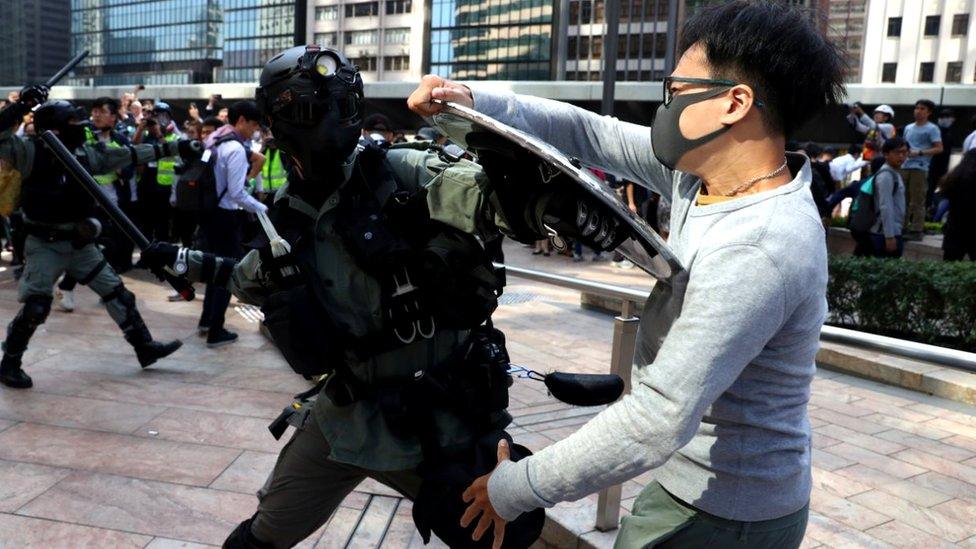Hong Kong protests hit Burberry and Cathay Pacific
- Published
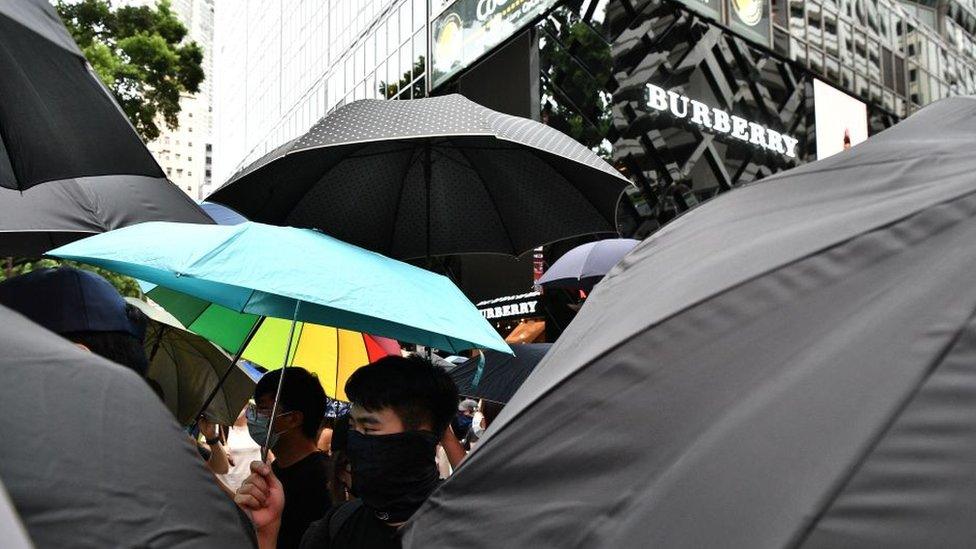
Burberry says it has seen a "double digit" percentage decline in sales in Hong Kong
Two companies with major operations in Hong Kong have revealed the financial impact of violent protests in the City.
Luxury fashion house Burberry said Hong Kong sales had fallen sharply and would "remain under pressure".
Airline Cathay Pacific said the civil unrest had "been exceptionally challenging, severely impacting demand and operations of the business".
The anti-government protests have gripped Hong Kong for five months and rattled stock markets.
Protecting staff
Burberry said it had seen a "double digit" percentage decline in sales in Hong Kong - where it has 10 shops and usually generates about 8% of its sales.
However, its share of sales from Hong Kong fell to 5% in the latest quarter and chief financial officer Julie Brown said the group had been forced to close some stores to keep staff safe, although none had been damaged.
The retailer said it had written down the value of its stores in Hong Kong by £14m.
Despite this, total sales across the Burberry group rose 5% in the six months to 28 September. Marco Gobbetti, Burberry's chief executive, said the results were in line with the guidance earlier in the year despite the disruption in Hong Kong, and the retailer's shares climbed 5% in response.
Mr Gobbetti has been taking Burberry further upmarket since he took the helm two years ago and said the new collection from its chief creative officer Riccardo Tisci was generating "strong double digit growth".
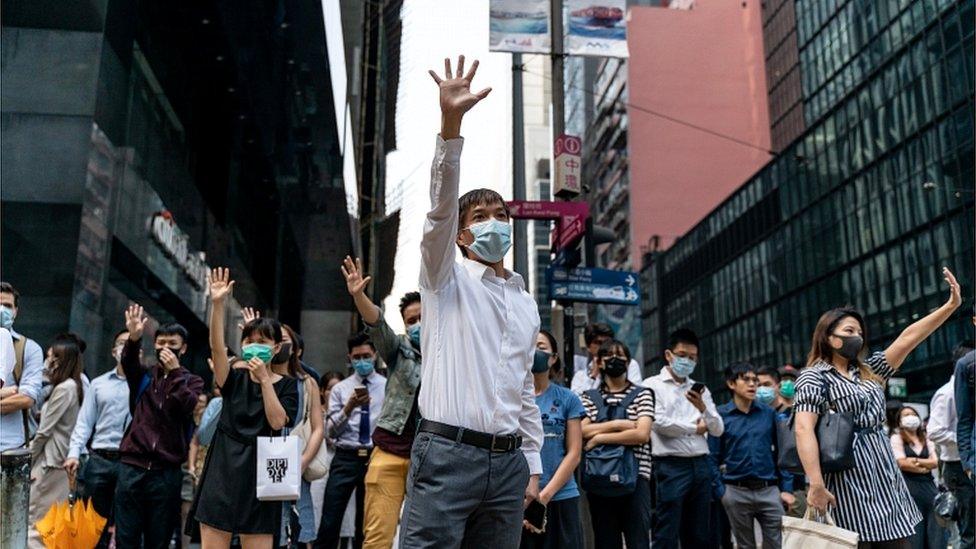
Anti-government protests in Hong Kong started five months ago
Cathay Pacific - which is majority-owned by the Swire investment company, while Air China has a 30% stake - said the short-term outlook remained "challenging and uncertain".
The Hong Kong flag carrier lowered its profit guidance for the second time in less than a month.
The "forward bookings outlook remains weak and uncertain", the airline said, with passenger traffic dipping "significantly", particularly for inbound flights from mainland China.
The airline changed its top management in August when its then chief executive, Rupert Hogg, quit after the airline became embroiled in a controversy over the Hong Kong protests.
Cathay Pacific had initially told its staff it would not stop them joining the pro-democracy demonstrations, but days later Mr Hogg warned staff they could be fired if they "support or participate in illegal protests".
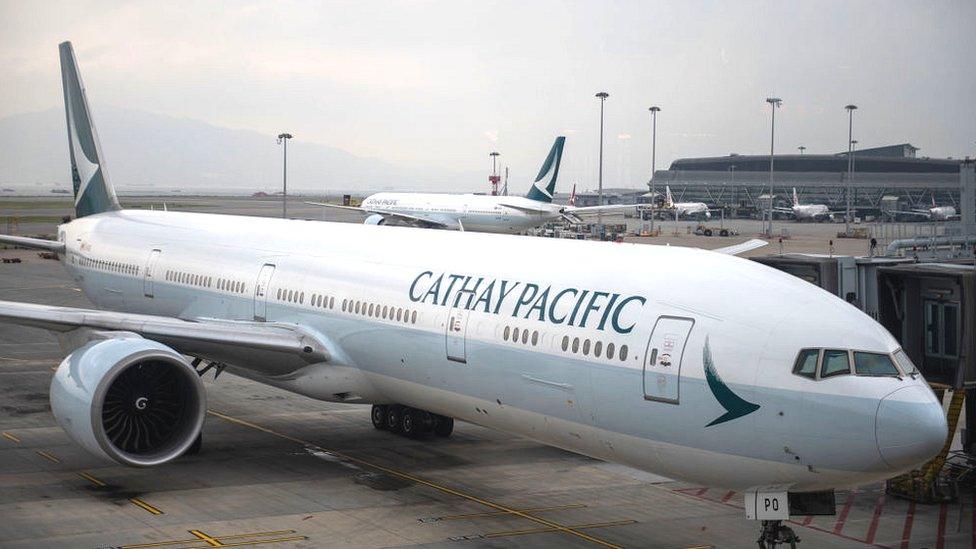
In Thursday's results presentation, the airline said inbound passenger traffic was down 38% in August and September, and 35% in October. It added it was reducing its fight capacity by 6% to 7% in the coming months.
The carrier is also deferring the delivery of four Airbus SE narrow body planes in 2020 as a result of the downturn in demand.
Luya You, an analyst at broking group Bocom International who attended Cathay's analyst briefing, told Reuters that the management "didn't rule out more extreme measures - grounding aircraft, severing leases, cancelling orders - if the situation in Hong Kong deteriorates or extends significantly beyond expectations".
All schools were closed on Thursday in Hong Kong as the territory faced another day of escalating unrest.
The protests started in June against plans to allow extradition to the mainland - which many feared would erode the city's freedoms.
Hong Kong is part of China, but as a former British colony it has some autonomy and people have more rights.
While the extradition plans were withdrawn in September, the demonstrations have continued, with protesters calling for an independent inquiry into alleged police brutality, and democratic reform.
- Published13 November 2019
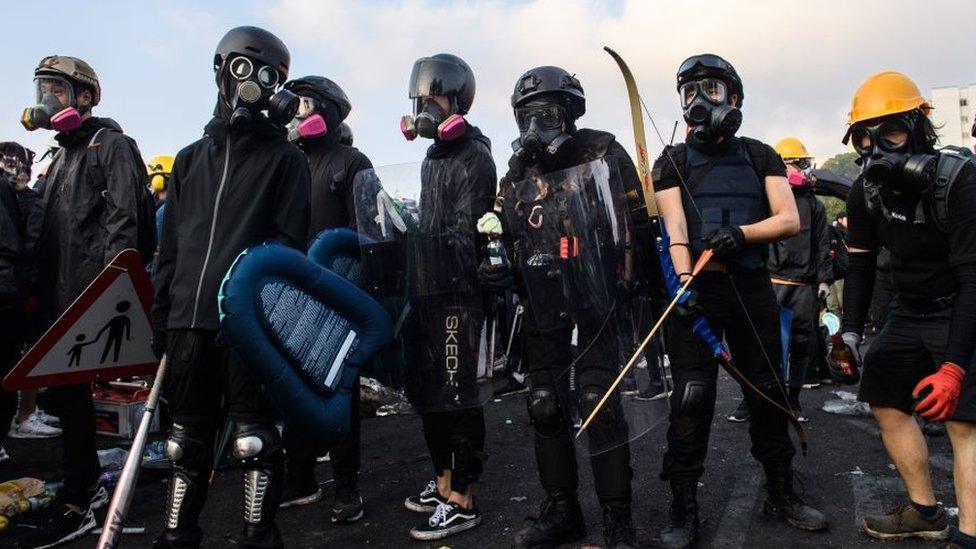
- Published13 November 2019
